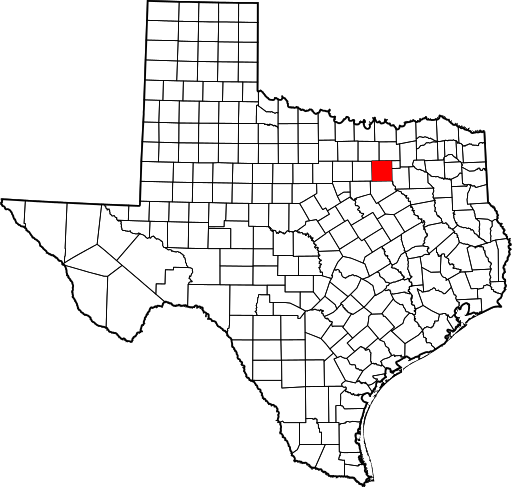Dallas County, TXGenWeb
Stout Henri Boll Jr., of Swiss Ave.
Dallas Morning News, date unknown.
Occasionally, when a new basement goes down, a dragline comes up with a scoop of bones, we wonder and think of murder. But the probability is that progress has disturbed a man properly buried in his own backyard.
A dozen cemeteries are around Dallas now, but once there was none, according to a silver-haired lady in a white knitted cap with a calm face and the fine little wrinkles of eighty-four years - Mrs. June Peak of 4400 Worth.
Of course, she was not there in 1857 when her parents, the Swiss Henri Bolls, left the largely French La Reunion Colony, which extended from West Dallas to Chalk Hill. But they - Considerant the leader, Cantegral a director - tried to get Boll to stay.
You need us as we need a good farmer and butcher, they told him. Your wife will bring you a child soon; you will need doctors which we have, and the good God forbid but you might need a cemetery.
Stout Henri Boll Jr., 27, shook his head. He was sorry, but the socialist theory of the colony was all wrong. Henri had worked hard, but lawyers who had no litigation had chased the long-eared hares, yet they had eaten of corn he had raised, meat he had butchered. Besides, the land was no good. Considerant in picking land that looked like his La Belle France had chosen the poorest in the county.
So Henri Boll and the wife he had married July 22, 1856, left the colony, rented land from Jefferson Peak one year, then bought some land near the struggling village of Dallas. On the south he set back his fence to continue a mud lane toward town. He would honor his countrymen in this new land, so he named the mud lane Swiss Avenue. Then on the east end he honored a country he had lived near. He named that street Germania, little knowing that in the next century America would fight and change the name to Liberty Street. Then he named another Texas for this wonderful land and another Cantegral for the man who had led him to it.
He built a story-and-a-half log house of four rooms in what is now the northwest corner of Swiss and Liberty and where Shorty s Sandwich Shop is. He planted a huge garden, farmed the rest and with his brother-in-law, Jacob Nussbaumer, opened a meat market in town.
Henri and his wife, Elizabetha Knoepfil Boll, were supremely happy. A home, a business of their own and soon a child. They would name the children Henry III if a boy, Henrietta if a girl.
In time a great blessing came upon them, Henry Boll III. How good was God, even in a primitive country where there were many flies but no screens, where doctors were few and knew only elemental things and the life of man was short. One day little Henry III sickened and relatives and a doctor came in. But Henry died.
It was a terrible blow. To the beautiful, gracious Elizabetha all her plans and hopes for her first-born and her suffering were but dust. To her husband it was a continued curse. Back in Switzerland he had buried a wife and two children and begun anew in a new land. Would he never hear the cheery voice of a happy family?
From lumber that had been hauled from Jefferson, a carpenter made a little box and in the Boll home most likely a brief service was held without a minister, unless an itinerant preacher was handy. Then out into the big garden quiet men carried the little box, just as other Dallasites did and over it Elizabetha planted a rose.
A year or so later the Bolls were blessed by Anna, then Minnie. Later Elizabeth conceived again and they thought of their first born; they would name it Henry or Henrietta. About the time the fury broke over slavery Henrietta was born, Henri Boll was among the first of the foreign-born to join the defense of his adopted land. A trained soldier, he would have made a good fighter but in a land of fighting men few understood supplies so he was kept in Texas in the Quartermaster Corps.
Henrietta proved a wonderful child. But she was listless one day with a high fever. And in time a second rose bloomed in the garden.
In 1864 another Henrietta came, one who would marry a daring ex-Confederate, June Peak. And the second Henrietta asked her mother why she was named the same as her sister. "She was so sweet and good." Said her wonderful mother, "that I named you Henrietta, hoping you would be as good and sweet as she."
After the war, may a destitute family left the destroyed the Old South to start anew in Texas and many coming from the East stopped at the home of Henri Boll. Could they get a bite to eat? Could they stay a spell? Never did the Bolls turn anyone away. Sometimes they stayed a month and if they died Boll buried them in the garden and Elizabetha put a rosebush over them, just as they did for Mrs. Susan Frichot, Henri s sister who died at San Jacinto and Leonard and was carried across the pasture to the Boll garden.
One wagon Henrietta Boll Peak can still see hurrying up, the horses lathered. In it was a wounded man. His name was Yetzer; he was coming here from Marshall with his young wife and daughter Frances, 6, in a wagon driven by a young Swiss, Charles Roahner, to open a brewery. Enroute, Yetzer had become ill, had been put to bed in the wagon, had rolled around in his fever and been shot by his own pistol.
The Bolls hurried them in and treated the wounded Yetzer. But shortly they planted another rosebush. Then they kept the young widow and her baby, who had no place to go, until Mrs. Yetzer became Mrs. Charles Meisterhans. Her little daughter grew up to become Mrs. Emil Fretz Sr.
In time, the Bolls had quite a rose garden. Later when Greenwood Cemetery was opened, the bodies of Yetzer and Mrs. Frichot were moved there, but the others, Henry III and Henrietta and the strangers that came ill out of nowhere - still rest near Swiss and Liberty where Henri Boll laid them away to become part of Dallas forever.




